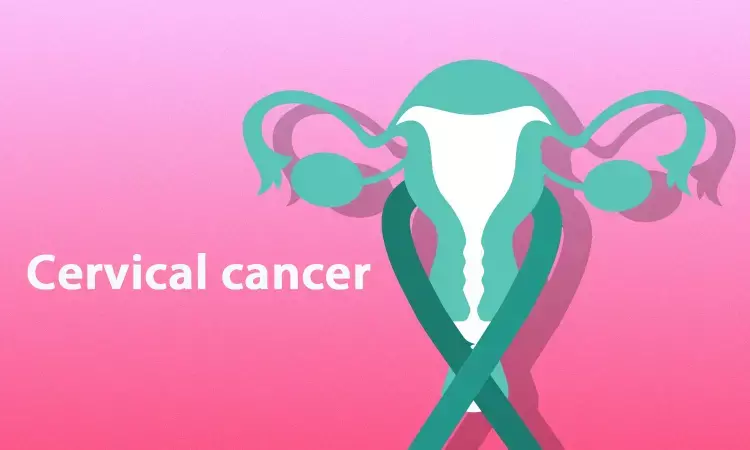- Home
- Medical news & Guidelines
- Anesthesiology
- Cardiology and CTVS
- Critical Care
- Dentistry
- Dermatology
- Diabetes and Endocrinology
- ENT
- Gastroenterology
- Medicine
- Nephrology
- Neurology
- Obstretics-Gynaecology
- Oncology
- Ophthalmology
- Orthopaedics
- Pediatrics-Neonatology
- Psychiatry
- Pulmonology
- Radiology
- Surgery
- Urology
- Laboratory Medicine
- Diet
- Nursing
- Paramedical
- Physiotherapy
- Health news
- Fact Check
- Bone Health Fact Check
- Brain Health Fact Check
- Cancer Related Fact Check
- Child Care Fact Check
- Dental and oral health fact check
- Diabetes and metabolic health fact check
- Diet and Nutrition Fact Check
- Eye and ENT Care Fact Check
- Fitness fact check
- Gut health fact check
- Heart health fact check
- Kidney health fact check
- Medical education fact check
- Men's health fact check
- Respiratory fact check
- Skin and hair care fact check
- Vaccine and Immunization fact check
- Women's health fact check
- AYUSH
- State News
- Andaman and Nicobar Islands
- Andhra Pradesh
- Arunachal Pradesh
- Assam
- Bihar
- Chandigarh
- Chattisgarh
- Dadra and Nagar Haveli
- Daman and Diu
- Delhi
- Goa
- Gujarat
- Haryana
- Himachal Pradesh
- Jammu & Kashmir
- Jharkhand
- Karnataka
- Kerala
- Ladakh
- Lakshadweep
- Madhya Pradesh
- Maharashtra
- Manipur
- Meghalaya
- Mizoram
- Nagaland
- Odisha
- Puducherry
- Punjab
- Rajasthan
- Sikkim
- Tamil Nadu
- Telangana
- Tripura
- Uttar Pradesh
- Uttrakhand
- West Bengal
- Medical Education
- Industry
Managing abnormal results on cervical cancer screening: ASCCP updated guidelines

Replacing guidelines for managing women with abnormal results on cervical cancer screening test from 2012, new recommendations from ASCCP emphasize more precise management based on estimates of the patient's risk - enabling more personalized recommendations for diagnosis, treatment, and follow-up. The revised guidelines with updated recommendations are now available in the Journal of Lower Genital Tract Disease (JLGTD), official journal of ASCCP. The journal is published in the Lippincott portfolio by Wolters Kluwer.
The 2019 ASCCP Risk-Based Management Consensus Guidelines for Abnormal Cervical Cancer Screening Tests and Cancer Precursors were published in JLGTD on April 2, 2020. The recommendations reflect advances in understanding of the multiple factors affecting a woman's risk of developing cervical cancer or precancer. Rebecca Perkins, MD, of Boston University School of Medicine and Richard Guido, MD, of University of Pittsburgh are lead authors of the revised Guideline documents.
Focus on 'More Complete and Precise' Management Based on Risk Estimates in Women with Cervical Screening Abnormalities
The three available strategies for cervical cancer screening are primary HPV screening, co-testing with HPV testing and cervical cytology (Papanicolaou test), and cervical cytology alone. The 2012 Guidelines were an important step forward, based on the principle of "equal management for equal risk."
Developed by a consensus of 19 professional societies, federal agencies, and patient advocacy groups, convened by ASCCP, the new update "further aligns management recommendations with current understanding of HPV natural history and cervical carcinogenesis [cancer development]." Objectives of the 2019 ASCCP Risk-Based Management Consensus Guidelines include:
Allowing for immediate and five-year personal risk estimation for the patient. Drs. Perkins and Guido and coauthors write, "New data indicate that a patient's risk of developing cervical precancer or cancer can be estimated using current screening test results and prior screening test and biopsy results," along with data on age and other personal factors. The revised recommendations incorporate recent evidence showing that patients with previous abnormal cervical screening results require more frequent screening.
Providing more appropriate intervention for high-risk individuals. The new 2019 risk-based guidelines call for more frequent follow-up, colposcopy/biopsy, and treatment for patients with higher individualized risk estimates of developing more advanced precancers or cervical cancer.
Recommending less intervention for low-risk individuals in order to decrease testing and treatment that won't prevent cancer and may cause reproductive harm. The new 2019 risk-based guidelines build on recent evidence showing that patients with lower-risk characteristic need less frequent-follow-up, and in some cases can take a 'wait-and-see' approach rather than undergoing immediate colposcopy/biopsy in some cases.
Allowing for the future addition of new screening and management technologies, and risk modifiers (such as HPV vaccination status). These changes reflect the rapidly evolving field of cervical cancer prevention and changes in population risk as more HPV-vaccinated women reaching screening age.
Recognizing that the new guidelines bring together an abundance of data, ASCCP has launched a brand new app, and soon a website, to streamline the navigation of the new 2019 risk-based guidelines. These computer resources greatly simplify what would otherwise be a very complex system. More information on this technology can be found at http://www.asccp.org.
"The revised Guidelines provide a framework for incorporating new data and technologies as ongoing incremental recommendation revisions, minimizing time to implement changes that are beneficial to patient care," Drs. Perkins and Guido and colleagues conclude. They plan future studies to assess the costs, benefits, and effectiveness of the updated recommendations, along with a guideline dissemination strategy "to create a new national standard-of-care for management of abnormal cervical cancer screening test results."
For further reference log on to:
doi: 10.1097/LGT.0000000000000525
Hina Zahid Joined Medical Dialogue in 2017 with a passion to work as a Reporter. She coordinates with various national and international journals and association and covers all the stories related to Medical guidelines, Medical Journals, rare medical surgeries as well as all the updates in the medical field. Email: editorial@medicaldialogues.in. Contact no. 011-43720751
Dr Kamal Kant Kohli-MBBS, DTCD- a chest specialist with more than 30 years of practice and a flair for writing clinical articles, Dr Kamal Kant Kohli joined Medical Dialogues as a Chief Editor of Medical News. Besides writing articles, as an editor, he proofreads and verifies all the medical content published on Medical Dialogues including those coming from journals, studies,medical conferences,guidelines etc. Email: drkohli@medicaldialogues.in. Contact no. 011-43720751


